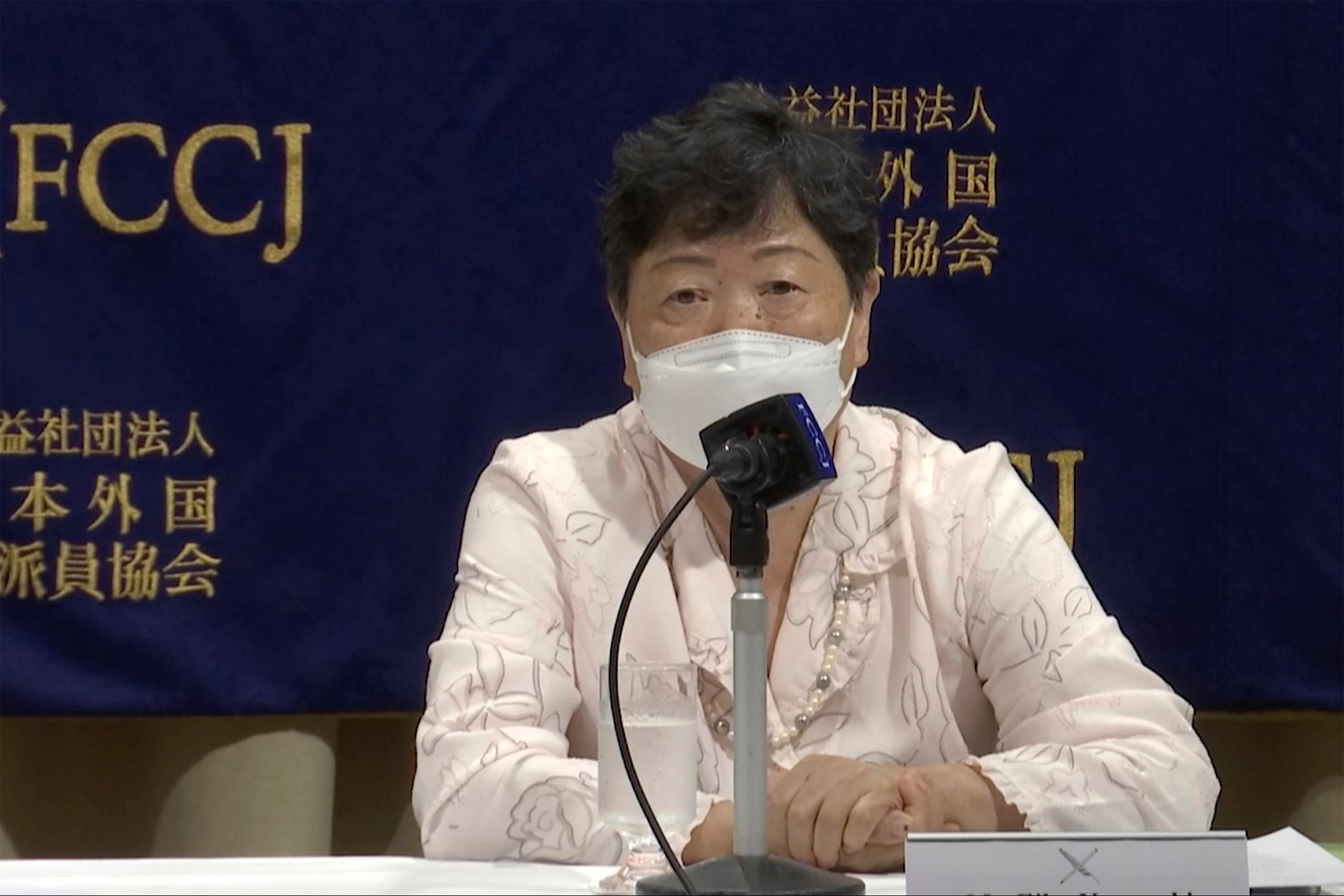Japan court summons NKorea leader over repatriation program
A Japanese judge has summoned North Korea’s leader to a court session to face demands for compensation by several ethnic Korean residents of Japan who say they suffered human rights abuses in North Korea after joining a resettlement program there

Your support helps us to tell the story
From reproductive rights to climate change to Big Tech, The Independent is on the ground when the story is developing. Whether it's investigating the financials of Elon Musk's pro-Trump PAC or producing our latest documentary, 'The A Word', which shines a light on the American women fighting for reproductive rights, we know how important it is to parse out the facts from the messaging.
At such a critical moment in US history, we need reporters on the ground. Your donation allows us to keep sending journalists to speak to both sides of the story.
The Independent is trusted by Americans across the entire political spectrum. And unlike many other quality news outlets, we choose not to lock Americans out of our reporting and analysis with paywalls. We believe quality journalism should be available to everyone, paid for by those who can afford it.
Your support makes all the difference.A Japanese court has summoned North Korea s leader to face demands for compensation by several ethnic Korean residents of Japan who say they suffered human rights abuses in North Korea after joining a resettlement program there that described the country as a “paradise on Earth ” a lawyer and plaintiff said Tuesday.
North Korean leader Kim Jong Un isn't expected to appear in court for the Oct. 14 hearing, but the judge's decision to summon him is a rare instance in which a foreign leader was not granted sovereign immunity, said Kenji Fukuda, a lawyer representing the five plaintiffs.
They are demanding 100 million yen ($900,000) each in compensation from North Korea for human rights violations they say they suffered under the resettlement program.
About 93,000 ethnic Korean residents of Japan and their family members went to North Korea decades ago because of promises of a better life. Many had faced discrimination in Japan as ethnic Koreans.
Eiko Kawasaki, 79, a Korean who was born and raised in Japan, was 17 when she left Japan in 1960, a year after North Korea began the massive repatriation program to make up for workers killed in the Korean War and bring overseas Koreans back home. The program continued to seek recruits, many of them originally from South Korea, until 1984.
The Japanese government also welcomed the program, viewing Koreans as outsiders, and helped arrange their transport to North Korea.
Kawasaki said she was confined to North Korea for 43 years until she was able to defect in 2003, leaving behind her grown children.
North Korea had promised free healthcare, education, jobs and other benefits, she said, but none of them were available and they were mostly assigned manual work at mines, forests or farms.
“If we were informed of the truth about North Korea, none of us would have gone,” she said at a news conference on Tuesday.
Kawasaki and four other defectors from the program filed a lawsuit in August 2018 against North Korea’s government in Tokyo District Court demanding compensation.
The court, after three years of pretrial discussions, agreed to summon Kim Jong Un to its first hearing on Oct. 14, said Fukuda, their lawyer.
Fukuda said he is not expecting Kim to appear, or provide compensation if it is ordered by the court, but hopes the case can set a precedent for future negotiations between Japan and North Korea on seeking the North's responsibility and normalizing diplomatic ties.
Although barred by the statute of limitations from legally seeking Japanese government responsibility for aiding the program, Kawasaki hopes it can help obtain the return of thousands of participants “still waiting to be rescued out of North Korea.”
“I do think the Japanese government should also take responsibility,” she said.
Kawasaki’s father was among hundreds of thousands of Koreans brought to Japan, many forcibly, to work in mines and factories before and during World War II. Japan colonized the Korean Peninsula in 1910-1945 — a past that still strains relations between Japan and the Koreas.
Today, about half a million ethnic Koreans live in Japan and continue to face discrimination in school, work and their daily lives.
“It has taken so long for us to come this far,” Kawasaki said. “Finally, it’s time for justice.”